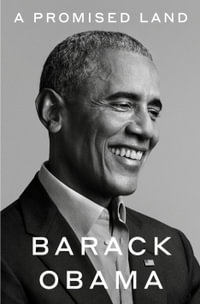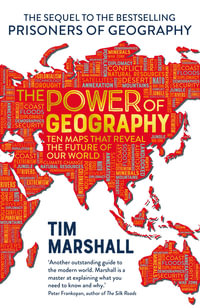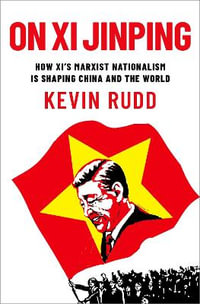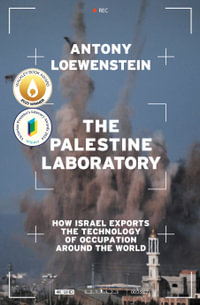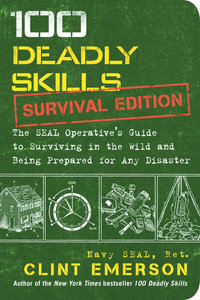"The most clear and engaging history of the deadly, historic partnership between Western powers and political Islam."--Salon.com
"Devil's Game" is the first comprehensive account of America's misguided efforts, stretching across decades, to dominate the strategically vital Middle East by courting and cultivating Islamic fundamentalism.
Drawing on extensive archival research and interviews with dozens of policy makers and CIA, Pentagon, and foreign service officials, Robert Dreyfuss follows the trail of American collusion from support for the Muslim Brotherhood in 1950s Egypt, to links with Khomeini and Afghani jihadists, to longstanding ties between radical Islamists and the leading banks of the West. The result is as tragic as it is paradoxical: originally deployed as pawns to foil nationalism and communism, extremist mullahs and ayatollahs now dominate the landscape, thundering against freedom of thought, science, women's rights, secularism--and their former patron.
Chronicling a history of double-dealing, cynical exploitation, and humiliating embarrassment that continues to this day, "Devil's Game" reveals a pattern that, far from furthering democracy or security, ensures a future of blunders and blowback. Based in Washington, D.C., Robert Dreyfuss has written extensively on Iraq, the war on terrorism, and national security for "The Nation," "The American Prospect," and "Rolling Stone," and is a frequent commentator on NPR, MSNBC, and CNBC. "Devil's Game" is the story of America's misguided efforts, stretching across decades, to dominate the strategically vital Middle East by courting and cultivating Islamic fundamentalism. Among all the books about Islam, this is the first comprehensive inquiry into the touchiest issue: How and why did the United States encourage and finance the spread of radical political Islam?
Backed by extensive archival research and interviews with dozens of policy makers and CIA, Pentagon, and foreign service officials, Robert Dreyfuss argues that this largely hidden relationship is greatly to blame for the global explosion of terrorism. He follows the trail of American collusion from support for the Muslim Brotherhood in 1950s Egypt to links with Khomeini and Afghani jihadists to cooperation with Hamas and Saudi Wahhabism. Dreyfuss also uncovers long-standing ties between radical Islamists and the leading banks of the West. The result is as tragic as it is paradoxical: originally deployed as pawns to foil nationalism and communism, extremist mullahs and ayatollahs now dominate the region, thundering against freedom of thought, science, women's rights, secularism--and their former patron. "Devil's Game" reveals a history of double-dealing, cynical exploitation, and humiliating embarrassment. What emerges is a pattern that, far from furthering democracy or security, ensures a future of blunders and blowback. "Crisp, lively . . . Provides a concise and readable account of the evolution of America's partnerships with radical Islamic groups and regimes."--"The American Conservative" "Crisp, lively . . . Provides a concise and readable account of the evolution of America's partnerships with radical Islamic groups and regimes."--"The American Conservative" "The most clear and engaging history of the deadly, historic partnership between Western powers and political Islam."--"Salon
""The crusade against the former Soviet Union is still viewed as the holiest of holies in elite circles to the point where it has become difficult to dissect anything that contributed to the retreat of Communist parties, including Islamic fundamentalism. This is what makes Robert Dreyfuss's "Devil's Game" so important, even shocking. For it is not only the best book extant on how the US collaborated with the most retrograde elements in the Islamic world during the cold war, it is also one of the more informative books on how the left transnationally was battered and bludgeoned."--Gerald Home, "Political Affairs Magazine
""Robert Dreyfuss has taken us--all of us--behind the trauma of 9/11 and shown that George Bush's failure to understand the dynamics of Islamic fundamentalism is nothing new. Our presidents have been missing the point for decades and, by doing so, have become the best allies of our worst nightmare. I would have entitled this brilliant book "Dumb and Dumber.""--Seymour Hersh, author of "Chain of Command""" "'The enemy of my enemy is my friend' is usually considered unsophisticated, tribal thinking. But Robert Dreyfuss shows how, during the Cold War, precisely this principle led the United States to support anti-Communist Islamist movements throughout the Muslim world--nurturing the whirlwind we are reaping today. His book is judicious, fascinating, and deeply grounded in a little-known history that stretches many decades back from the CIA's supports for anti-Soviet forces in Afghanistan. He is wise enough to know that all of the strength of fundamentalist Islam can't be blamed on American bungling, but the amount that can is appalling."--Adam Hochschild, author of "Bury the Chains "and" King Leopold's Ghost""" "A fluent tour de force--Dreyfuss skillfully documents the misguided stratagems of generations of statesmen whose attempts to use the Islamic right to Western strategic advantage have helped make political Islam the formidable force it is today. He makes a convincing case that the U.S. government inadvertently played a central role in building up the forces that struck New York and Washington on 9/11, and questions whether some current U.S. policies and actions are not still strengthening rather than weakening enemies of our country. Dreyfuss's carefully researched and well-written story will be a revelation to experts on the Islamic world and a shock to concerned Americans."--Chas W. Freeman, Jr., former assistant secretary of defense and U.S. ambassador to Saudi Arabia, 1989-92 "Reagan's CIA director William Casey knew next to nothing about Islam
Industry Reviews
"Eye-opening, original, and important." --Chalmers Johnson, author of The Sorrows of Empire
"Crisp, lively . . . Provides a concise and readable account of the evolution of America's partnerships with radical Islamic groups and regimes." --The American Conservative



